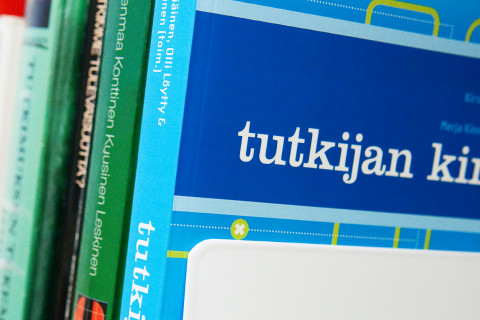Approved 8 February 2024
The task of the library is to create and maintain the conditions for research, teaching and learning at the University of Eastern Finland by acquiring, storing, and making available up-to-date information resources that meet the needs of the university. The library’s resource collections and the library as a space and learning environment are a key part of the teaching, learning and research infrastructure.
In accordance with the Act on Collecting and Preserving Cultural Materials (1433/2007), the library acts as a place for the storage and use of domestic materials, i.e. as a legal deposit library. The library is also a European Documentation Centre.
This collection programme sets out the principles for the resource collection work that support the fulfilment of the above-mentioned library mission. The policies of the collection programme guide the work and decisions of the library.
Selection and acquisition of resources
The University of Eastern Finland acquires domestic and foreign academic material concerning the university's fields of education and research. The library agrees on the general guidelines for acquisitions and the use of funds in cooperation with the faculties and disciplines. The library cooperates with the disciplines in the selection of materials, and purchases are made on the basis of suggestions from the university community. The library is responsible for developing the collections equitably so that the needs of the different disciplines are met.
When making acquisition decisions, the library complies with public procurement regulations and the university's procurement guidelines. The collections are accumulated through purchases, accepting donations of free materials (see Accepting donations) and open access materials. The university aims to promote openness in science and scientific publishing. Open scientific research is promoted and made available to the university community by linking open online resources to the library's database and making them discoverable through the library's customer interface. The library promotes open research also by supporting organisations that work to promote and increase the openness of scientific information.
General principles followed in the acquisition of resources:
- resources are acquired in electronic format when possible
- resources can be used based on an IP address or Haka login, and should also be accessible remotely
- the university's own publications and theses, with the exception of bachelor theses, are always included in the collections
- as a general rule, research literature is purchased as single copies or licensed for one concurrent user
Principles followed in the acquisition of course books:
- the library acquires the course books listed in the degree requirements
- as a general rule, 1 copy for every 5 students participating in the course, but no more than 30 printed copies
- if the book is not available electronically, it will be purchased in print
Use of the collections
The library is an open academic library, and its collections are available to everyone either in the library premises or as home loans. The electronic resources are also available remotely to members of the University of Eastern Finland community.
The printed legal deposit copies are stored in the legal deposit collection unit in Joensuu, from where they are delivered to customers for use at reading rooms. The use of electronic legal deposit copies is possible at the legal deposit workstations in campus libraries.
Information on printed and electronic materials acquired for the collections is found in the library’s customer interface.
Evaluation and development of the collections
The collections undergo quantitative and qualitative evaluation to ensure that they fulfil the needs of customers.
For the evaluation of the collections, the library
- analyses the accumulation and use of the collections
- monitors the loan statistics for printed materials
Removals are part of the regular maintenance and development of the collections. The results of the evaluation are utilised in the maintenance work, and long-term preservation considers, above all, the need for use at the university.
The availability of removed printed material is ensured by transferring it to the National Repository Library.
Accepting donations
Donations are accepted at the discretion of the library. The library only accepts donations that develop the collections required for the research and teaching activities of the university.
The library is not obliged to store all the donations it receives, nor can it accept donations that require special conditions (e.g. keeping the donation as a whole, picking up donations at the university’s expense).
Donated publications that are not accepted into the library’s collections are primarily sent to the National Repository Library.
Donors are asked to primarily contact the library’s collection services regarding donations of literature.

